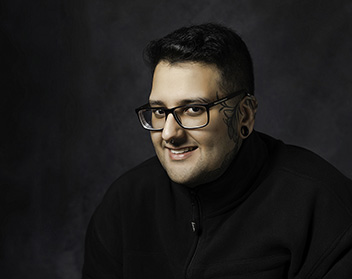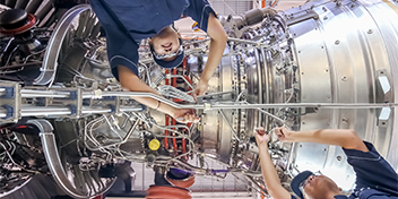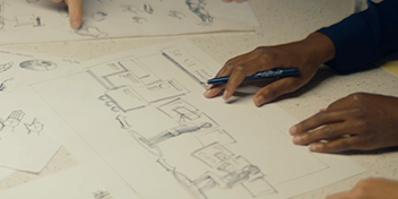What inspired you to become an engineer or pointed you towards an engineering career?
I’ve always been interested in technology since a young age, particularly computers. I’ve found it remarkable the power that engineering has in shaping the world around us. The meritocratic nature of the engineering profession helped me to pursue engineering as a career.
Please describe your role or position within your workplace.
I currently run a company that provides software engineering and cybersecurity consultancy services to a variety of different companies, with a particular focus on investigations, due diligence, and transformation initiatives. As Managing Director, my work includes both technical leadership while also helping strategise and run the business day to day.
Can you describe a typical working day?
No two days are ever the same in my job. As our clients are based around the world, our working hours and locations can vary significantly to ensure we can service clients from California to Singapore and Korea.
In general, my day starts with catching up on any overnight developments that could affect the business or our key clients. I’ll typically have a stand-up meeting with the team to share news and discuss our key priorities and projects. Throughout the day, I’ll have meetings with key clients, suppliers, review work done within the team and work on projects that are personally assigned to me. Additionally, I’ll oversee the day-to-day management of the organisation.
Are there any particular challenges or unusual aspects to your role?
The work Engprax does involves complex investigations, technical audits, and consulting on turnaround/transformation initiatives – our work is therefore very much high stakes. Investigations I’ve led have been used to influence decisions by significant governments and companies. Our consulting work has successfully changed the way entire industries address various issues, like burnout amongst software engineers.
What do you find most enjoyable about your job?
I’m lucky enough to engage in a great variety of work, all in an area I find deeply interesting. One day I could be working on a study about barriers to whistleblowing among software engineers, the next day I could be investigating internet infrastructure issues in North Korea.
Is there a great professional achievement or high-profile accomplishment that you would like to tell us about?
I’m proud to have recently been named the youngest ever Fellow of the IET after demonstrating “personal responsibility for significant technological innovation and independent contributions to original research that have resulted in international recognition”. This work has included addressing the way the industry addresses password security, studying mental health amongst software engineers and engineering work on large-scale mission-critical systems.
What contributed to your decision to become professionally registered?
Early in my career I worked on systems to improve the safety and efficiency of transportation systems that were used hundreds of times a day. During that time, I developed an interest in becoming a Chartered Engineer (CEng) to qualify for work where professional registration was essential. Professional registration provided me with feedback on my own career progression and areas I could develop next, while gaining recognition for those developments.
In what ways has registration benefitted your career?
Being a CEng has opened many other career options for me and provided assurance to future employers that I meet a common standard, while helping raise quality across the entire industry. Additionally, engaging in the broader UK engineering community provides access to a diverse network across many different disciplines.
How does your employer benefit from your professional registration?
Being a CEng assures our clients that we work according to ethical and professional standards and demonstrates that we maintain a high level of quality in our work. When our work is reviewed by third parties or used as evidence, it provides others with assurance on the quality of work we have undertaken.
Is there any advice you would pass on to someone considering professional registration?
In the first instance, reach out to your professional engineering institution, who will be able to offer you a great deal of support in undergoing the process. I’d also definitely recommend reading the UK Standard for Professional Engineering Competence and Commitment (UK-SPEC) to understand the requirements of the various professional registration options that are available.
Where do you see yourself in your career in five years’ time or what are your future ambitions?
I’m enjoying the work I’m doing right now. I feel passionate about continuing to deliver strong engineering work that yields a real-world impact, no matter which environment that’s in.
Outside work, is there any activity you enjoy doing in your spare time that relates to engineering? For example, do you participate in mentoring, volunteering or membership of other engineering groups?
I’m particularly proud of the pro bono work that Engprax has engaged in to support various human rights organisations around the world, protecting people from persecution as they tell their stories to the outside world. I’m also proud to engage in the software engineering community to help others maximise their impact and develop their careers.









